“The effects of human wickedness are written on the page of history in characters of blood: but the impression soon fades away; so more blood must be shed to renew it.”
~Augustus William Hare and Julius Charles Hare
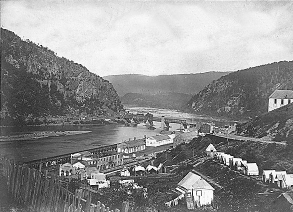
1862 – General Thomas “Stonewall” Jackson captured Harpers Ferry, Virginia (present-day West Virginia) and 12,000 Union soldiers.
General George B. McClellan, commander of the Army of the Potomac, sent messages to Union General Dixon Miles, commander of the Harpers Ferry garrison, urging Miles to hold the town at all costs. Instead, Miles offered little resistance before agreeing to surrender. Even as General Julius White (Miles’ aide, ) rode to Jackson to negotiate surrender terms, one Confederate cannon continued to fire. Miles was mortally wounded by the last shot fired at Harpers Ferry.
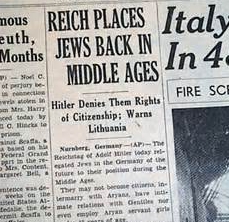
1935 – German Jews were stripped of their citizenship, reducing them to mere “subjects” of the state. With the Nuremberg Laws imposed on this date, German Jews were excluded from a host of high-profile vocations, from public office to journalism, radio, theater, film, teaching and farming. Jews were forbidden to marry “Aryans”. Jews found it difficult even to buy food, as groceries, bakeries, and dairies would not admit Jewish customers. Even pharmacies refused to sell them medicines or drugs.
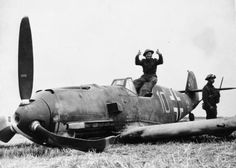
1940 – The Battle of Britain reached its climax when the Royal Air Force downed 56 invading German aircraft in two dogfights lasting less than an hour. The costly raid convinced the German high command that the Luftwaffe could not achieve air supremacy over Britain. Although heavy German aid raids on London and other British cities would continue through spring 1941, the Battle of Britain was effectively won.
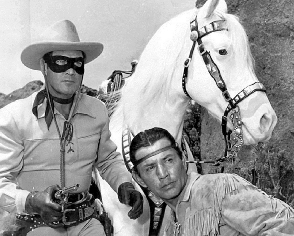
1949 – The Lone Ranger premiered on ABC. Although the program ran for eight season, that’s a little misleading. The first 78 episodes were produced and broadcast for 78 consecutive weeks without any breaks or reruns. Then the entire 78 episodes were shown again before any new episodes were produced. Only five of the eight seasons actually had new episodes.
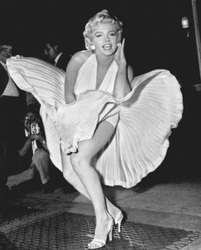
1954 – The famous picture of Marilyn Monroe, laughing as her skirt is blown up by the blast from a subway vent, was shot during the filming of The Seven Year Itch. The scene infuriated her husband, Joe DiMaggio, who felt it was exhibitionist, and the couple divorced shortly afterward.
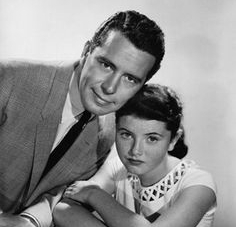
1957 – Bachelor Father premiered on CBS. By the time the series ended in 1962, it had appeared on all three of the major networks.
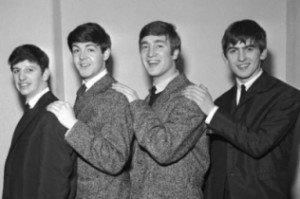
1962 – Brian Epstein brought the Beatles to London for an interview with the Daily Mirror’s Peter Jones, who concluded: “They’re a nothing group.”
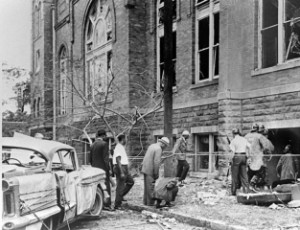
1963 – A bomb exploded during Sunday morning services in the 16th Street Baptist Church in Birmingham, Alabama, killing four young girls. The church bombing was the third in Birmingham in 11 days after a federal order came down to integrate Alabama’s school system. Fifteen sticks of dynamite were planted in the church basement, underneath what turned out to be the girls’ restroom. The bomb detonated at 10:19 a.m., killing Cynthia Wesley, Carole Robertson and Addie Mae Collins–all 14 years old–and 11-year-old Denise McNair.
A well-known Klan member, Robert Chambliss, was charged with murder and with buying 122 sticks of dynamite. In October 1963, Chambliss was cleared of the murder charge and received a six-month jail sentence and a $100 fine for the dynamite.
Although a subsequent FBI investigation identified three other men – Bobby Frank Cherry, Herman Cash and Thomas E. Blanton, Jr. – as having helped Chambliss commit the crime, it was later revealed that FBI chairman J. Edgar Hoover blocked their prosecution and shut down the investigation without filing charges in 1968. After Alabama Attorney General Bill Baxley reopened the case, Chambliss was convicted in 1977 and sentenced to life in prison.
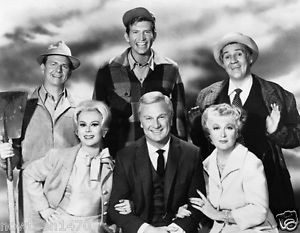
1965 – Green Acres and Lost In Space both premiered on CBS. The Big Valley and Gidget debuted on ABC, while NBC premiered I Spy.
1965 – Ford Motor Company became the first automaker to offer an 8-track tape player as an option for their entire line of vehicles on sale in the U.S. Tapes were initially only available at auto parts stores.
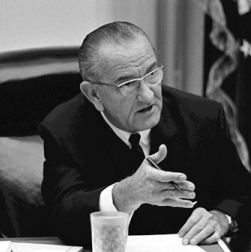
1966 – President Lyndon B. Johnson, responding to a sniper attack at the University of Texas at Austin, wrote a letter to Congress urging the enactment of gun control legislation.
Six weeks earlier, on August 1, Charles Whitman had killed 14 people and wounded 32 others during a shooting rampage on and around the University of Texas at Austin’s campus. An ex-Marine, three of his victims were killed inside the University’s tower, and 10 others were killed from the 29th floor observation deck of the University’s 307-foot administrative building.
On October 22, 1968, Johnson signed into law the Gun Control Act, which primarily focused on regulating interstate commerce in firearms by prohibiting interstate firearms transfers except among licensed manufacturers, dealers and importers.
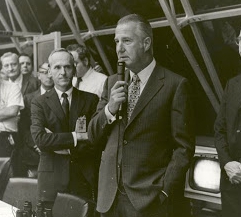
1970 – Vice-President Spiro Agnew claimed the youth of America were being “brainwashed into a drug culture” by rock music, movies, books and underground newspapers.
Three years later, Agnew pleaded no contest to a single charge that he had failed to report $29,500 of income received in 1967, with the condition that he resign the office of Vice President.
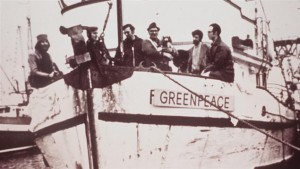
1971 – Twelve members of the “Don’t Make A Wave Committee” founded Greenpeace, the environmental organization committed to a green and peaceful world. The group from Vancouver, British Columbia was aboard the Phyllis Cormack sailing to Amchitka, Alaska to protest nuclear testing.
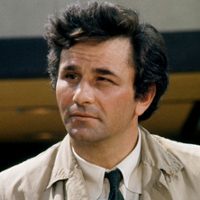
1971 – Originally broadcast as a movie of the week one-off in 1968, Columbo premiered as a series (part of the Sunday Movie Mystery) on NBC.
1981 – The Senate Judiciary Committee unanimously approved Sandra Day O’Connor for the U.S. Supreme Court.
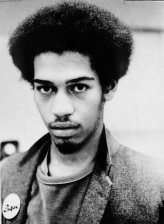
1983 – On the same day the Committee Against Racially Motivated Police Violence was holding a news conference to publicize a Congressional hearing into complaints of police abuse, graffiti artist Michael Stewart was beaten into unconsciousness by New York City police for spray painting on a wall of the First Avenue subway station.
Stewart – an African American – died 13 days later without ever regaining consciousness. Three officers, John Kostick, Anthony Piscola and Henry Boerner, were charged with criminally negligent homicide, assault and perjury. Three other officers, Sgt. Henry Hassler, Sgt. James Barry and Susan Techky, who denied that they saw officers kick Stewart, were charged with perjury.
All six were acquitted by an all-white jury.
1986 – L.A. Law began an eight-year run on NBC.

1987 – The Senate Judiciary Committee began confirmation hearings on President Ronald Reagan’s nomination of Robert Bork to the U.S. Supreme Court. The rancorous process included a strong condemnation of Bork by U.S. Senator Ted Kennedy which successfully fueled widespread public skepticism of the nominee. Bork’s nomination was subsequently defeated by the full Senate, 58-42.
2004 – The collective bargaining agreement between the NHL and the NHL Players Association expired. NHL Commissioner Gary Bettman announced a lockout that resulted in the cancellation of the entire season; the first time a major professional sports league in North America canceled a complete season because of a labor dispute.
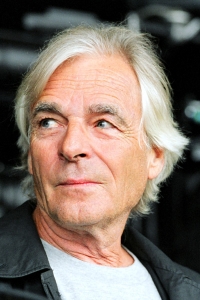
2008 – Rick Wright (keyboards/songwriter with Pink Floyd – ‘The Great Gig In The Sky’) died at the age of 65 after a battle with cancer.
Compiled by Ray Lemire ©2015 RayLemire.com. All Rights Reserved.